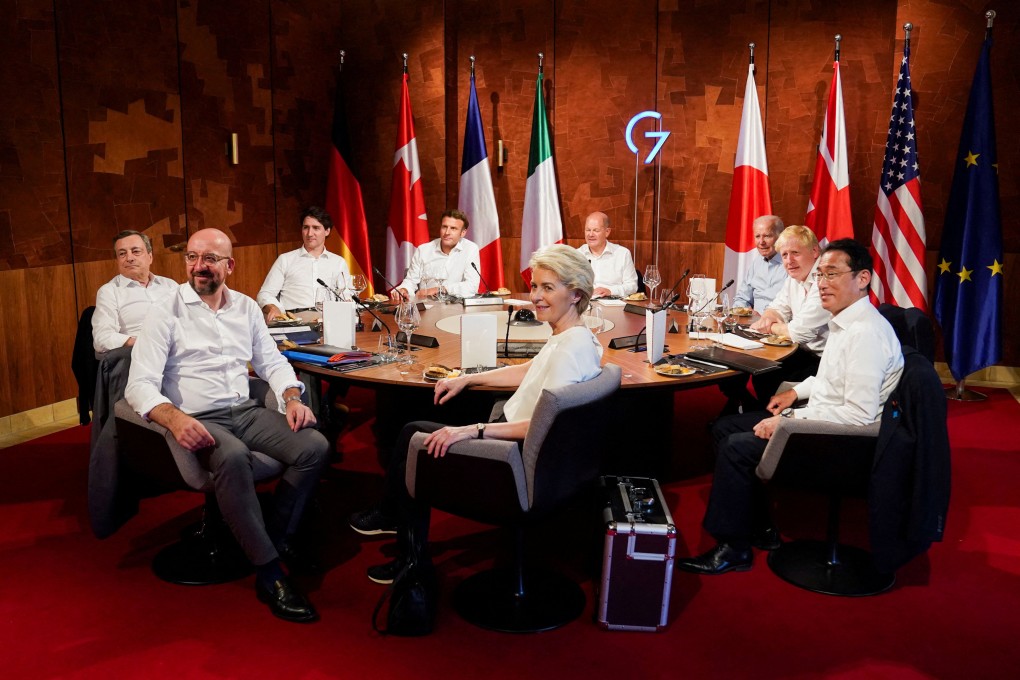Advertisement
China hits back at US over G7 ‘zero-sum’ belt and road alternative
- Washington’s revived partnership is an attempt to ‘smear Beijing’ and its infrastructure initiative, foreign ministry says
- The American effort should not be underestimated or discredited, analyst says
Reading Time:4 minutes
Why you can trust SCMP
99+

Beijing has slammed Washington’s renewed efforts to jointly counter China’s Belt and Road Initiative, calling the G7-backed global infrastructure project a geopolitical scheme to smear and contain China.
US President Joe Biden and other leaders from the Group of 7 unveiled the “Partnership for Global Infrastructure and Investment” at their annual gathering in Germany on Sunday, with a pledge to raise US$600 billion over five years to fund infrastructure projects in developing countries.
The partnership is largely a revival of the Build Back Better World initiative launched at the G7 summit a year ago – a scheme that faltered over financial difficulties and competing efforts by the United States and its European allies, such as the EU’s Global Gateway.
Advertisement
Outlining the Biden administration’s China policy in May, US Secretary of State Antony Blinken said the renewed G7 effort would be “a coordinated, high-standard, and transparent approach to meet the enormous infrastructure needs in developing countries”.
Beijing last week described Biden’s rebranded initiative as a “zero-sum game approach” targeting China. On Monday, Chinese foreign ministry spokesman Zhao Lijian doubled down on Beijing’s criticism.
Advertisement
Advertisement
Select Voice
Choose your listening speed
Get through articles 2x faster
1.25x
250 WPM
Slow
Average
Fast
1.25x
